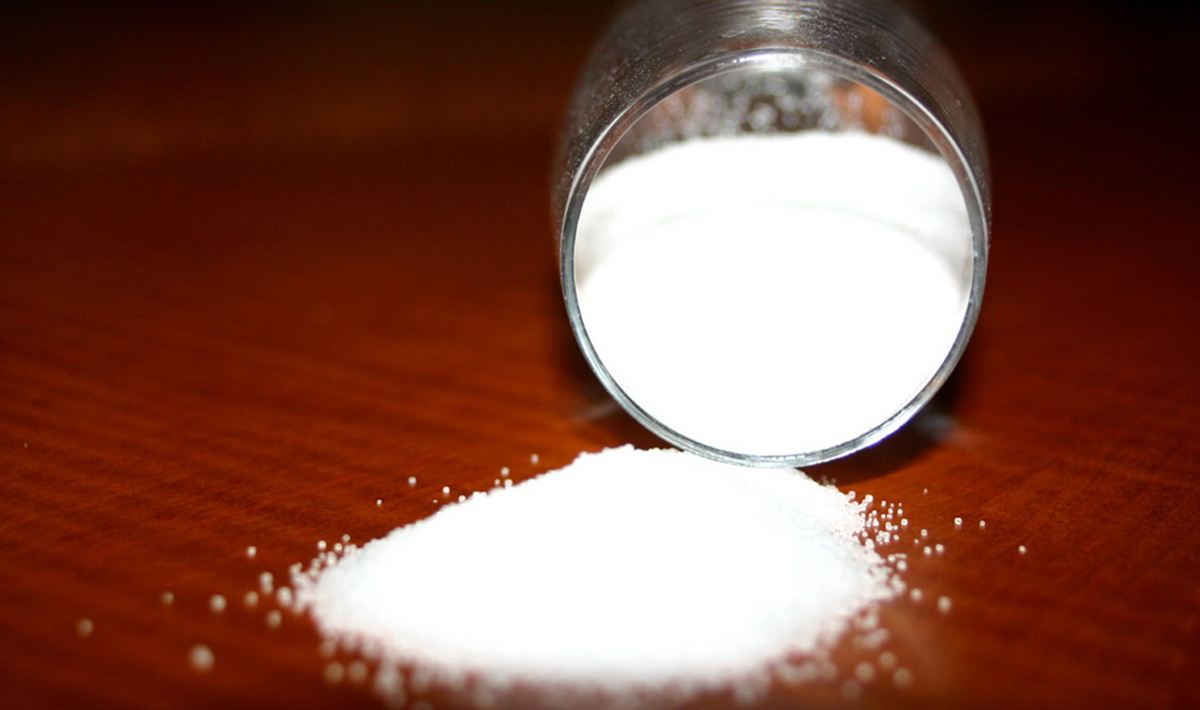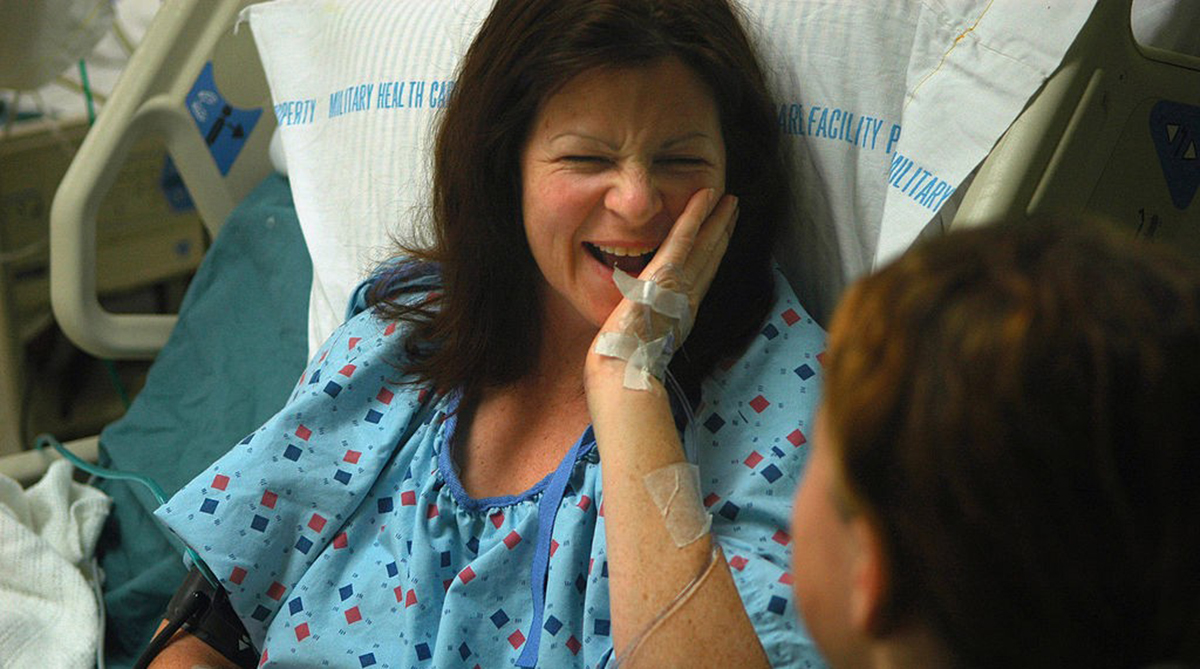When Evelyn visited her mother Georgia, who was in the hospital recovering from hip replacement surgery, she immediately knew something was desperately wrong.

Even at the ripe old age of 88, Georgia was usually mentally alert. After the surgery, she just didn't seem to be "with it." The nursing staff seemed to think it was just caused by old age, but daughter Evelyn knew it was more than that.
Never one to get headaches, Georgia had been asking for pain medication. And even though hip replacement is a traumatic experience and a certain reluctance to get up and get moving is only to be expected after such an extensive surgery, Georgia just didn't want to do anything at all. And she seemed a little puffy all over, not something to be expected in a woman of 88.
Fortunately, Evelyn, herself a doctor, asked to see her mother's labs. The problem was immediately clear.
Hospitals Are Hotbeds of Hyponatremia
Hyponatremia is a common condition among hospital patients, particularly those who have high blood pressure or cardiovascular disease. Accepting the nutritional dictum that sodium is always bad, many hospitalists automatically put patients with any kind of cardiovascular indication on a sodium-restricted diet.
Studies find that between 15 and 30 percent of all hospital patients develop moderate hyponatremia. Used to eating a higher-salt diet, sodium levels fall rapidly and suddenly when eating hospital food. Usually the hyponatremia is mild, with blood plasma sodium levels ranging from 130 to 135 mg/dl, but in about 10 percent of all hospitalizations low sodium levels are severe, below 130 mg/dl. And certain surgical procedures, especially hip surgery, are especially likely to cause low sodium levels.
Danger of Low Sodium Levels Especially Acute After Hip Replacement Surgery
Two British researchers, Dr. James Edward Rudge and Dr. Daniel Kim of City Hospital, Sandwell and West Birmingham Hospitals NHS Trust write in their report, published online June 7 in Age and Ageing, reviewed the records of 254 patients who underwent hip surgery after falls in their trauma units in 2012. They found that sodium levels typically fell during surgery, and that 27 percent of patients developed moderately low sodium levels and 9 percent developed severely low sodium levels after the procedure.
Patients on proton pump inhibitors for gastroesophageal reflux disease were more likely to develop hyponatremia. Patients taking selective serotonin reuptake inhibitors for depression were more likely to develop hyponatremia as well. Otherwise, gender, the type of fracture, race, and ethnicity made little or no difference in sodium levels. However, patients who developed low sodium levels had to stay in the hospital on average 9 days longer than those who did not.
See Also: No Benefit Seen In Driving Your Salt Consumption Down To Very Low Levels
Deaths from hyponatremia while in the hospital are rare, but they unfortunately aren't unknown. Problems from low sodium levels, however, are well known:
- When patients come into the hospital with low sodium levels and then have surgery, they are more likely to die of complications. About 10 percent of patients admitted with low sodium levels who have to have hip surgery right away, for instance, die of complications within 30 days.
Preventing Hyponatremia In The Hospital
More problems associated with low sodium levels include:
- Hypopituiatarism. People who have low sodium levels often have problems with the pituitary gland, either from untreated hemochromatosis (iron overload disease) or tumors. This is a problem that takes years to develop, but that is often undetected. Failing to treat the problem with the pituitary gland can make treating other issues far more complicated.

So what can you do to make sure you or a loved one isn't incapacitated by the extremely common and usually easily correctable metabolic issue?
- Don't be afraid to ask if you, or your loved one, is getting enough salt, especially when in the hospital for surgery and placed on a low-sodium diet. This is an issue you need to bring up with the physician managing your hospital care, not the nurse, who can only pass on the question to your doctor in most cases.
- If you feel unusually groggy even after anesthesia and pain medications should have worn off, or if you loved one seems unusually "out of it," let a nurse know. Mental symptoms don't necessarily mean you have a mental problem. You may have a serious but easily correctable metabolic problem.
- Let your nurse know if you feel "puffy," or you have swelling in your hands or feet. If you feel like you have a bigger belly than usual, especially if you have been eating less, let your nurse know so you can be evaluated for ascites.
- Avoid drinking excessive fluid, because water dilutes salt and salt is an essential nutrient. Drinking too much fluid adds water to your bloodstream that lowers the sodium concentration in your blood plasma.
It is also important to avoid do-it-yourself treatment while you are staying in the hospital. Sure, (suspected) low sodium levels might seem like the perfect reason to ask a friend to smuggle in a cheeseburger during visiting hours, but as a patient, you need to cooperate with your doctors and nurses to get the best possible results from your hospital stay.
This is especially important if your doctors decide to treat your low sodium levels with a drug called vasopressin. This medication prevents your kidneys from releasing sodium into urine, and therefore, trying to boost your salt intake on your own can lead to serious complications.
See Also: A Dash or Two is Better than Too Little or Too Much Salt
Even though it can be a pain to work with your hospitalist and nurses to get your diet right, it is always best to work with hospital staff rather than working around them. Even after you get out of the hospital, low sodium levels can still show up. It is important not to overindulge in beer, which can cause a condition called potomania, which results in unusually low sodium levels, and while you should always do your best to follow your doctor's diet suggestions, you don't have to follow a diet that is more restrictive than what the doctor orders. Some sodium is both necessary and good for your health, so never attempt to take the doctor's orders to consume a low salt diet to an extreme by avoiding salt entirely.
- Harding A. Hyponatremia Frequent After Surgery for Traumatic Hip Fracture. Reuter's Health Information. 27 June 2014.
- Photo courtesy of a2td by FreeImages : www.freeimages.com/photo/161695
- Photo courtesy of U.S. Navy photo by Mass Communication Specialist 1st Class Danny Hayes by Wikimedia Commons : commons.wikimedia.org/wiki/File:US_Navy_080809-N-4033H-015_Australian_hiker_Debra_Paver_discusses_her_experience_hiking_in_the_Owen_Stan

